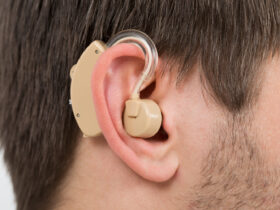If you had to pay for certain medical expenses out of your pocket, it’s best to keep the receipts handy since you may be able to claim tax deductions. To make the best use of these tax benefits, it’s important to know what medical expenses you can claim and how to claim the deduction.
What Is the Tax Deduction for Medical Expenses?
The Internal Revenue System (IRS) allows you to deduct qualified unreimbursed medical expenses that exceed 7.5% of your adjusted gross income. Starting from 2020, this threshold has been increased to 10% of one’s adjusted gross income. So, for instance, if your adjusted gross income is $60,000, anything that is beyond 10% of this amount, which will be $6,000 in your case, can be deductible. So, if you’ve spent $20,000 on medical expenses, $14,000 of this amount could be the deductible.
Which Expenses Are Deductible?
Certain expenses which can be deducted include:
- Hospital and nursing home care
- Payments made to doctors, psychiatrists, surgeons, dentists, and other medical practitioners
- Addiction programs
- Acupuncture
- Weight-loss programs provided it has been diagnosed by a medical practitioner
- Prescription drugs and insulin
- Transportation costs to and from the hospital or medical practitioner’s office
- Insurance premiums for medical care if they are not covered by your employer
For the complete list of inclusion, make sure to refer to IRS Publication 502.
Keep in mind that cosmetic surgeries, funeral expenses, expenses made for general upkeep like health club dues, toothpaste, etc., are not deductible. Also, any medical expense for which you receive reimbursement either from your employer or through your insurance provider cannot be claimed.
How to Claim a Tax Deduction?
To claim tax benefits, you will need to itemize your deduction. When you itemize, you will not be able to claim the standard deduction. So, make sure to check if your standard deduction is lower than your itemized deduction. If you do decide to itemize your deductions, you will need to file your taxes using IRS Form 1040 and attach Schedule A to it.
Remember that if you are married, you may be able to get a bigger medical expenses deduction if you file separately. This, however, is a risky move since you may lose out on other tax breaks. So, ensure that you consider this when deciding your filing status.
























